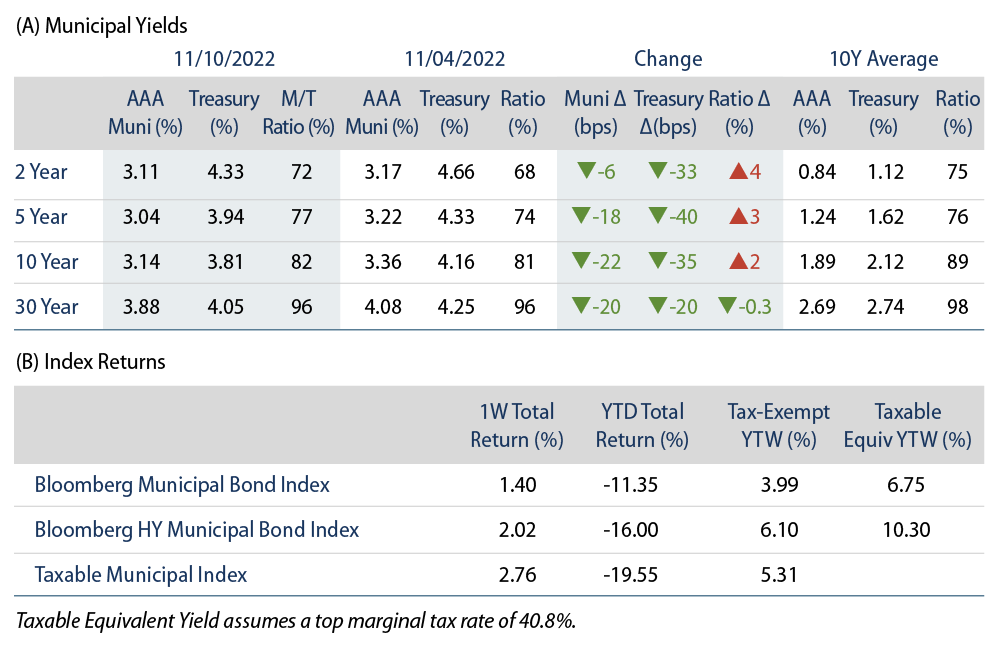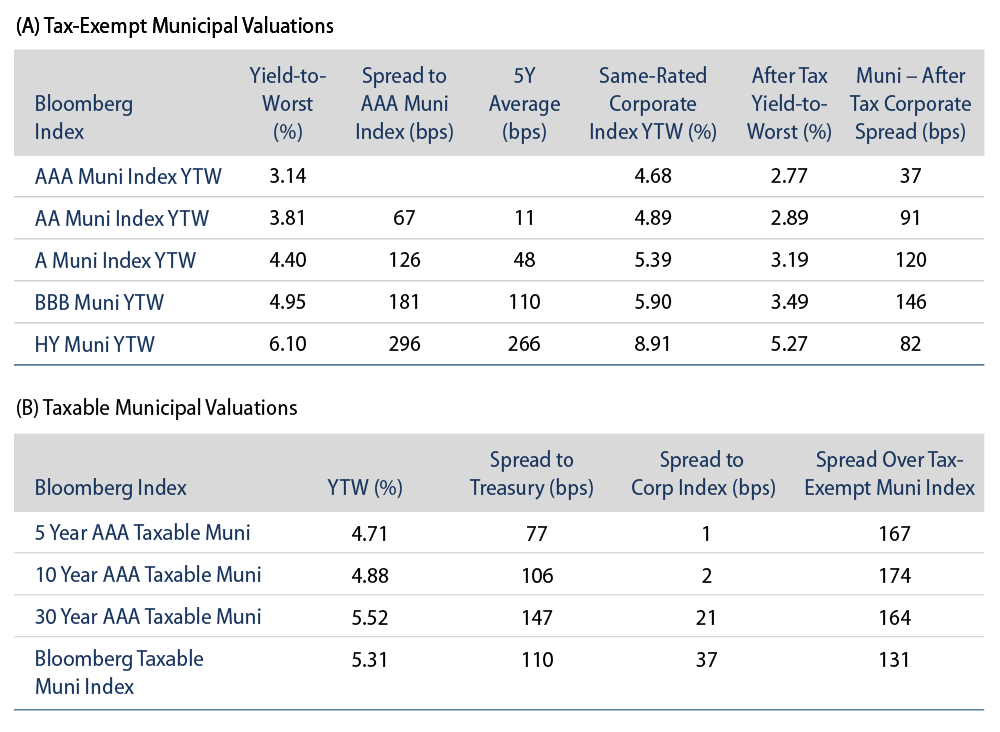Tax-Exempt Municipals Posted Positive Returns
Tax-exempt municipals posted positive returns last week as tax-exempt rates followed Treasuries lower. Munis followed the Treasury rally, as the headline Consumer Price Index (CPI) figure indicated easing inflation. High-grade muni yields moved sharply lower with Treasuries. Meanwhile, technicals weakened as fund outflows accelerated. The Bloomberg Municipal Index returned +1.40%, the HY Muni Index returned +2.02% and the Taxable Muni Index returned +2.76%. This week we highlight the outcomes of the US midterm elections.
Technicals Weakened as Fund Outflows Accelerated
Fund Flows: During the week ending November 9, weekly reporting municipal mutual funds recorded $2.5 billion of net outflows, according to Lipper. Long-term funds recorded $1.2 billion of outflows, high-yield funds recorded $700 million of outflows and intermediate funds recorded $810 million of outflows. The week’s outflows extend year-to-date (YTD) net outflows to $113 billion.
Supply: The muni market recorded $5 billion of new-issue volume last week, up 43% from the prior week. Total YTD issuance of $329 billion remains 17% lower than last year’s levels, with tax-exempt issuance trending 5% lower year-over-year (YoY) and taxable issuance trending 52% lower YoY. This week’s new-issue calendar is expected to tick up to $8 billion. Larger deals include $575 million Duval County School Board and $505 million Tennessee Gas Supply (Tennergy Corporation) transactions.
This Week in Munis: Election Outcomes
Over the past two weeks we highlighted bond initiatives and tax proposals on the ballot in the midterm elections. This week we discuss the outcomes and implications of these initiatives for municipal investors.
Voters passed more than $37 billion of the $66 billion of state and local bond measures that were part of the midterm ballots, according to Bloomberg and IHS Markit data. The largest bond measure of $4.2 billion, dedicated to climate initiatives in New York, passed with 70% of voter support. In other elections, Rhode Island passed three proposals for educational, and environmental and recreational bonds. Meanwhile, New Mexico and Alabama passed broadband initiatives which could be supported by municipal issuance.
Tax policy outcomes were mixed across states. As expected, California’s Proposition 30, which would have raised income tax rates for those earning $2 million or greater to support electric vehicles, failed. However, Massachusetts’ Question 1, which would raise the income taxes on millionaires by 4% to fund infrastructure initiatives, passed. As expected, Colorado reduced its state income tax rate to 4.40% from 4.55%, which will minimize tax refunds to residents. Notably, West Virginia did not amend its constitution to repeal property taxes on vehicles and machinery. The controversial amendment was characterized by opponents as a “vote-buying” effort that would have reduced funding for needed school expenditures.
Overall, Western Asset believes that voters preferred debt measures that funded essential services and facilities, as well as environmental initiatives. Tax policy decisions were mixed across the board, but our view is that the voting results were generally prudent and constructive for municipal fundamentals when considering the positive-to-neutral revenue implications across the related states. In addition to the tax and bond measures, marijuana legalization efforts failed in North Dakota and Arkansas, but passed in Maryland and Missouri. This brings the total number of states with legalized cannabis use to 21. We will touch upon the implications of this next week.





